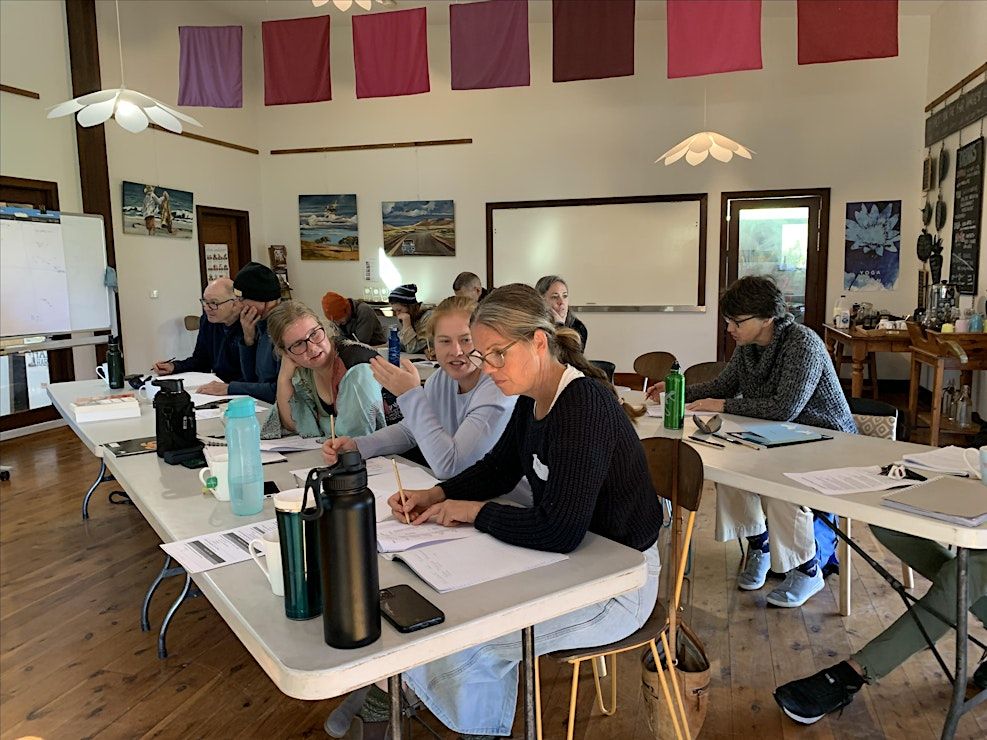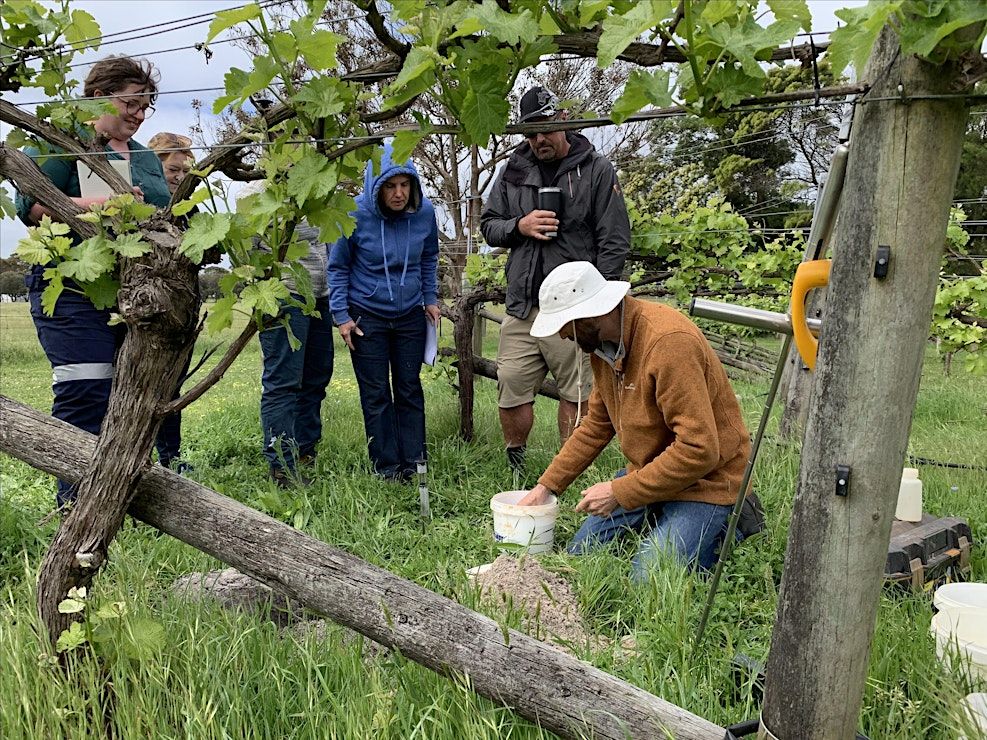
About this Event
What is Holistic Management?
It is a decision-making framework that helps land managers consider their specific environmental, social, and economic factors simultaneously.
For the past 30 years, this inclusive approach has helped farmers across Australia improve their land, family life, and profit by creating more sustainable and resilient landscapes.
Your Feedback Matters
We adjusted our course to meet feedback that suggested a program would be more useful, particularly for those new to agriculture, those returning, and for farming couples wanting to align their approaches.
Holistic Management Program Offers:
- 2 x 2-day workshops aligned with season changes (December 2024 and May 2025)
- 2 x 1-hour individual/couple online mentoring sessions
- 5 x monthly group calls
- 1 x On-farm field day
Financial assistance provided through Healthy Estuaries WA supports broad participation in workshop learning and practice change implementation.
Workshop Dates:
Fair Harvest - Margaret River
Workshop One: 2-3 December - 8.30am - 4.30pm (Non / slow growing season)
Workshop Two: 29-30 May - 8.30am - 4.30pm (Fast growing season)
Why take this LEAP?
· Learn how to manage effectively for positive outcomes
· Engage with like-minded people and build a supportive network
· Advance small changes for a big impact over time
· Pick up skills to extend the growing season for increased profitability and climate resilience


Success Stories
During a recent visit to New South Wales, we saw firsthand how Holistic Management can lead to thriving landscapes and stronger communities.
Michael and Anna Coughlin, leading holistic management practitioners in Australia, farm near Holbrook, NSW. Since 2008, they’ve been part of “The 8 Families Group,” that meet every six weeks to discuss holistic management practice implementation.
Consequently, they have extended their growing season, lowered production costs, and made their land more resilient and profitable. Recently, they were thrilled to see the endangered Southern Pygmy Perch return to their creek.
Find out more about Michael and Anna Coughlin’s story of success here:
https://savory.global/science_library/prosperity-through-simplicity-the-coughlans-of-tarabah/
https://www.commercialrealestate.com.au/news/holistic-farming-couple-spend-22m-on-south-grampians-beauty-1152854/
Nick and Deanna Austin, also members of the "8 Families Group," farm along the Murrumbidgee River. Their top priority is maintaining the ecological health of their land.
“Having a framework to guide our decisions and test our assumptions has been the greatest benefit of holistic management for us.”
Nick and Deanna Austin, Mundarlo, NSW (October 2024).
Find out more about Nick and Deanna’s story here: https://soilsforlife.org.au/mundarlo-case-study/
Find out more about The 8 Families Group here:
https://soilsforlife.org.au/the-8-families-group/
Similar results are being seen in WA, where local farmers report longer growing seasons, greater species variation, better landscape and animal health and improved profits. Environmental profit plus financial profit equals true profit and a happy family.
Raquel and Murray Johnson, along with their daughter Emily, run Galloway Springs, a farm 10 km south of Bridgetown on the Blackwood River. Raquel’s approach to her role on their mixed farm changed after she completed a holistic management course in 2021.
“I realised that I make a big contribution to our farm even though I don’t drive a tractor or work in the yards. Marketing is something I do well so rather than feeling like a support person, I get that I play a key role in our business”
Raquel Johnson, Bridgetown, WA (September 2024)
Find out more about the Galloway Springs story here:
https://www.gallowaysprings.com.au/about-the-farm
The Power of Good Management
How we manage our land makes a difference. A longer growing season, better water retention, and healthier soil all add up to a more profitable, resilient and sustainable future for you and your family, and your community.
Essential Questions to Ask Yourself
· Are special places that hold meaning for me disappearing?
· Will my favourite bird species still have a place to nest in 5 years?
· How do I want our landscape to look and function 10 years from now?
· Have we talked as a family about a succession plan for the future?
The key principles of Holistic Management include:
Holistic Context Setting: Begin by defining a holistic context that encompasses your values, aspirations, and the well-being of your community and environment. This context serves as a guiding vision for your decision-making.
Holistic Decision-Making: This involves considering the social, economic, and environmental aspects of your decision simultaneously. The process encourages a comprehensive analysis of the potential impacts on all three spheres, promoting more sustainable choices.
Ecosystem Health: A strong emphasis is placed on maintaining or restoring the health of ecosystems. This involves understanding the relationships between different components of the environment and managing land in a way that enhances biodiversity, soil fertility, and water quality.
Time and Timing: The framework recognises the importance of timing in decision-making. For example, the timing of grazing, planting, and other activities is crucial to ecosystem health and productivity.
Monitoring and Feedback: Continuous monitoring of outcomes and feedback loops means regularly assessing the impact of decisions and adjusting management practices accordingly.
Adaptive Management: The approach is adaptive, meaning that management practices can be adjusted based on the feedback and the evolving conditions. Flexibility is crucial to respond to changing circumstances.
Community and Social Well-being: Holistic Management acknowledges the importance of social and community factors. It encourages community involvement and considers the well-being of people alongside environmental and economic factors.
Profitability: Economic viability is recognised as an essential component of sustainability. Holistic Management seeks to ensure that your management decisions are economically sound and contribute to the long-term financial health of everyone involved.
Holistic Management addresses the challenges associated with overgrazing and desertification and helps improve the small water cycle.
About Your Holistic Management Educators
Barb Howard and Bernard Callus are certified Holistic Management educators with the Savory Institute in the U.S. They lead the Institute of Regenerative Leadership, bringing years of experience with farming clients and collaboration with top Holistic Management educators worldwide. Their approach combines regenerative practices, positive psychology, and extensive backgrounds in community development and science.
Find out more about your educators here:
https://regenerativeleadership.com.au/holistic-management/
https://savory.global/becoming-a-holistic-management-educator/
This project is funded by a State Government program that aims to improve the health of our South West estuaries.
Event Venue & Nearby Stays
Fair harvest, 426 Carters Road, Margaret River, Australia
AUD 425.00








